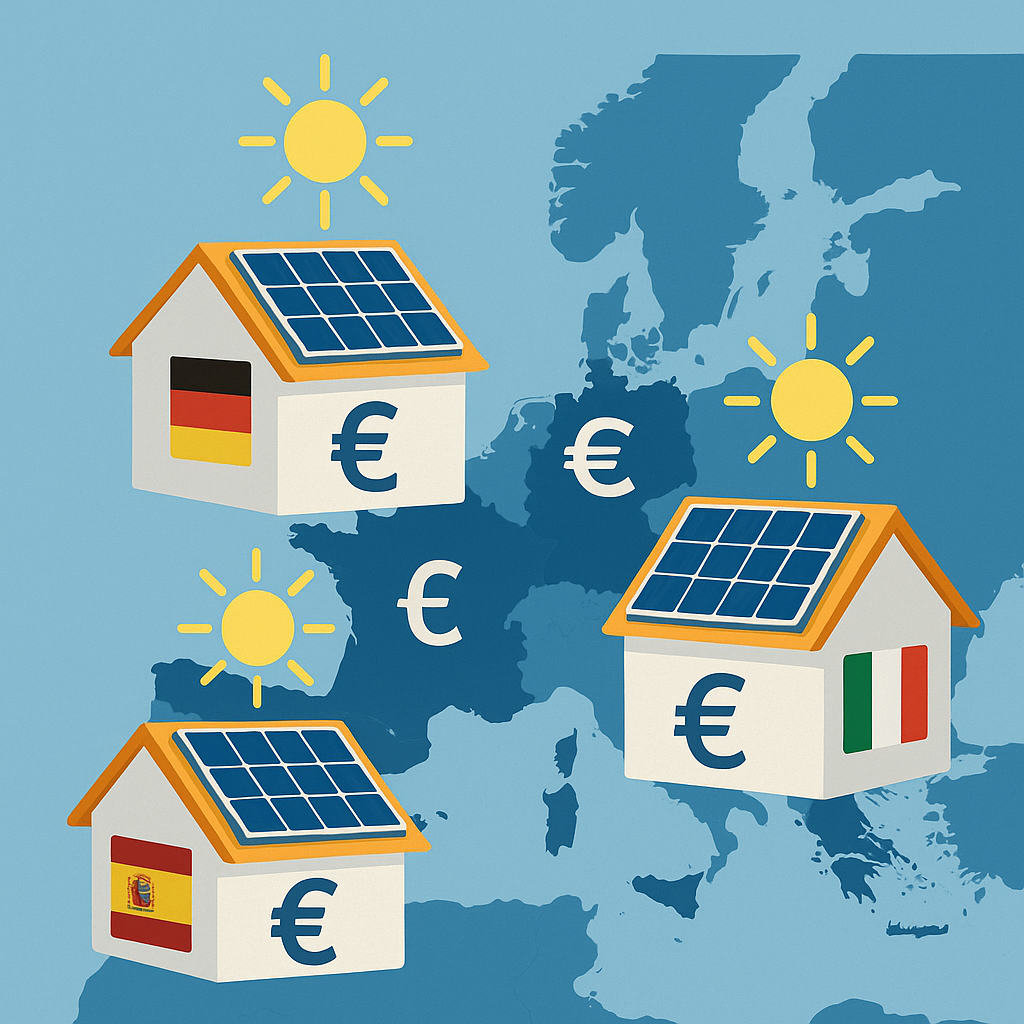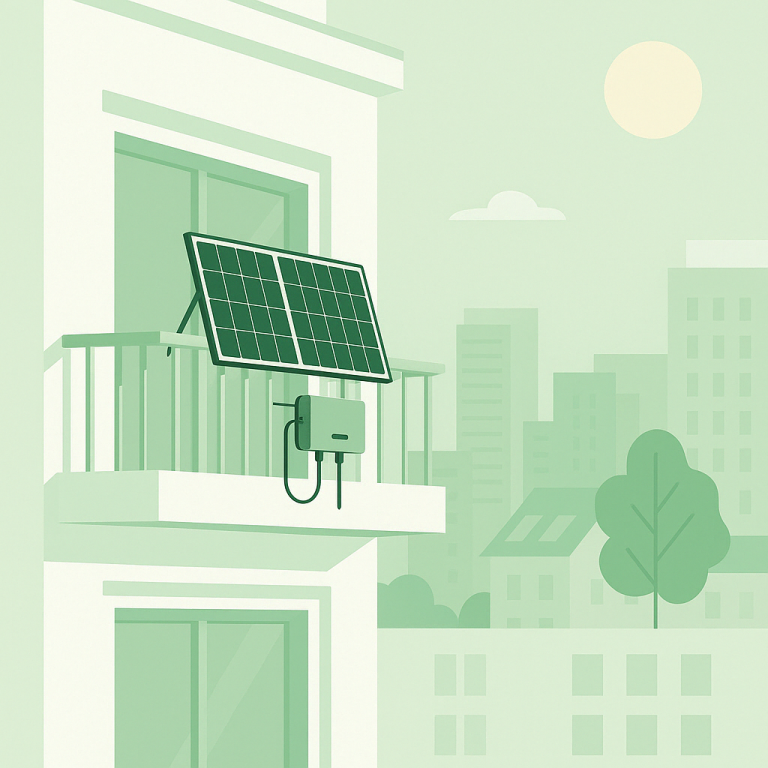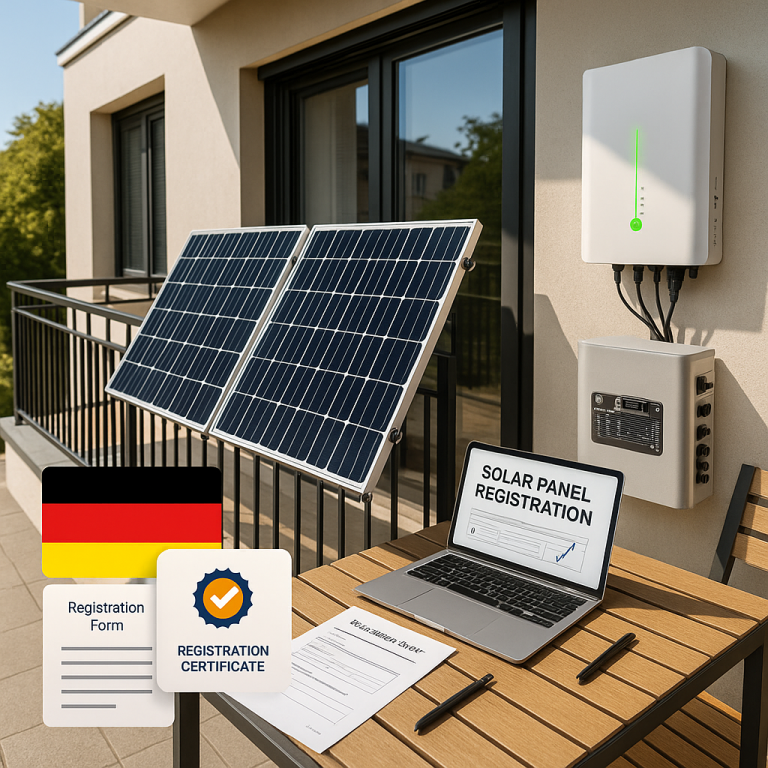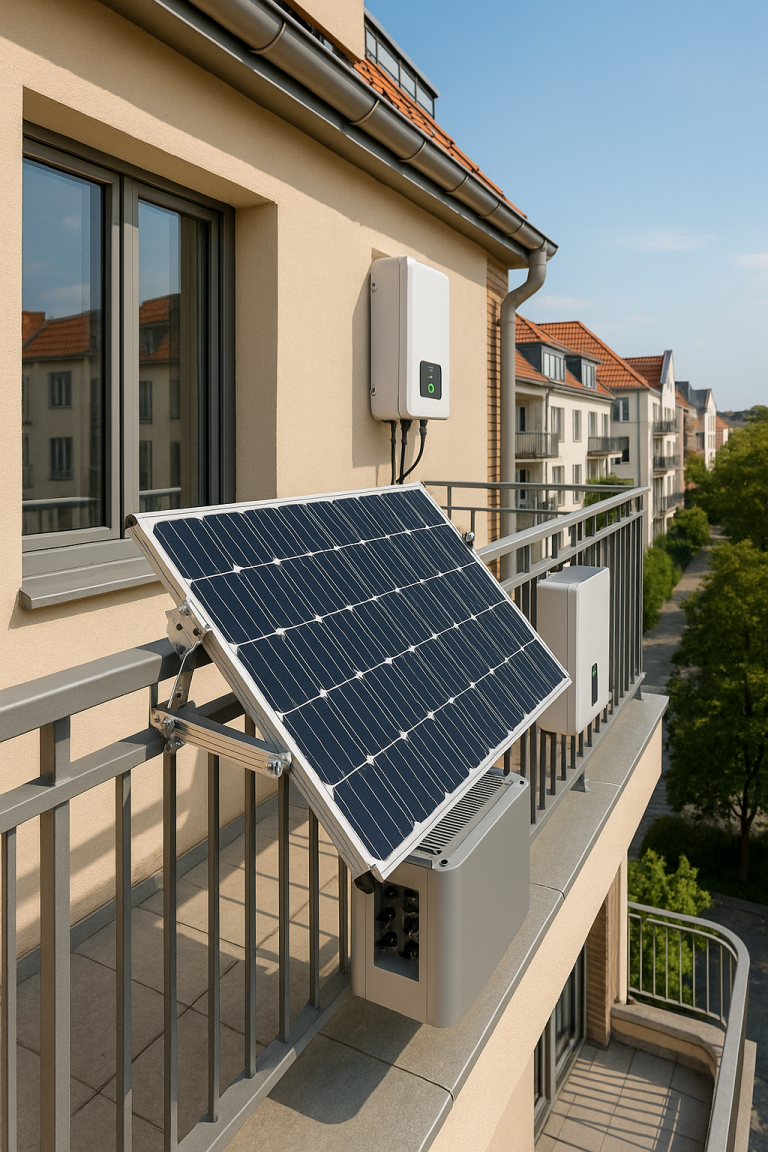☀️ Introduction
As the EU moves rapidly toward its climate targets, national and local governments across Europe are rolling out generous incentives to make solar more accessible and affordable. From direct subsidies and tax breaks to feed-in tariffs and net metering, 2025 is shaping up to be a landmark year for solar investment.
This guide provides a country-by-country overview of the most relevant solar energy incentives for homeowners, businesses, and B2B installers.
?? Germany
Incentive Types:
- VAT exemption for balcony PV (up to 30kW)
- State subsidies for energy storage (in some Bundesländer)
- Net metering through energy providers
- Reduced bureaucratic steps for plug & play systems (via MaStR)
Key Program: KfW 442 (Battery Storage Program) — covers up to 25% of LiFePO4 battery cost
Ideal For: Renters and homeowners with small systems
?? France
Incentive Types:
- Self-consumption bonus (“prime à l’autoconsommation”)
- Reduced VAT (10%) for systems under 3kWp
- Feed-in tariffs up to 18.55 €/kWh
- Ademe grants for thermal-solar hybrids
Tip: Feed-in contracts can last up to 20 years; better ROI with hybrid systems
Ideal For: Residential rooftops, small business installations
?? Spain
Incentive Types:
- Up to 50% subsidy under regional programs (e.g., NextGen EU)
- Property tax reductions (IBI discounts for 5 years)
- 40–50% corporate tax credit for solar installs
- Simplified grid connection for systems <15kW
Best Regions: Valencia, Madrid, Catalonia
Ideal For: Homeowners and SMEs in sunny regions
?? Italy
Incentive Types:
- Superbonus (revised in 2025, up to 70% refund)
- Tax deductions under Ecobonus scheme
- Regional battery storage grants (Campania, Lombardy)
- Simplified procedures for balcony and shed systems
Watch Out: Requires ENEA pre-registration and certified installers
Ideal For: Full-house renovations, hybrid retrofits
?? Netherlands
Incentive Types:
- Net metering (salderingsregeling) extended to 2025
- 0% VAT on residential solar (as of 2023)
- Regional battery pilot programs (e.g., Utrecht, Noord-Holland)
Policy Trend: Gradual phase-out of net metering post-2025
Ideal For: DIY users and early adopters
?? Austria & ?? Switzerland
Austria:
- Federal Klima + Energie Fonds grants (up to €285/kWp)
- Battery support up to €250 per kWh (max €3,750)
Switzerland:
- One-time rebate (PRU) for up to 30% of system cost
- Grid feed-in compensation (varies by canton)
Ideal For: Rural homeowners, community cooperatives
✨ Bonus: EU-Wide Initiatives
- NextGenerationEU: Recovery funding for public solar infrastructure and private rebates
- EIB Green Loans: Low-interest financing for solar kits and batteries
- Solar Rooftop Mandate (effective 2026): Early adopters benefit from pre-regulation subsidies
? Final Tips for Getting Incentives
- Always register your system early (MaStR in Germany, ENEA in Italy, etc.)
- Use certified installers and CE-marked products
- Check for regional funds — many programs are managed at the local level
- Apply before funding deadlines or yearly quotas run out
✅ Related links:
• German KfW 442 Energy Storage Subsidy → Link to KfW official page
• ENEA Registration → Link to Italian ENEA official website
• German MaStR Platform → Link to German Market Master Data Registration Platform
? Need help designing a subsidy-eligible solar system? Contact us for expert support, system proposals, or to get JYH-certified solutions tailored for your country.




